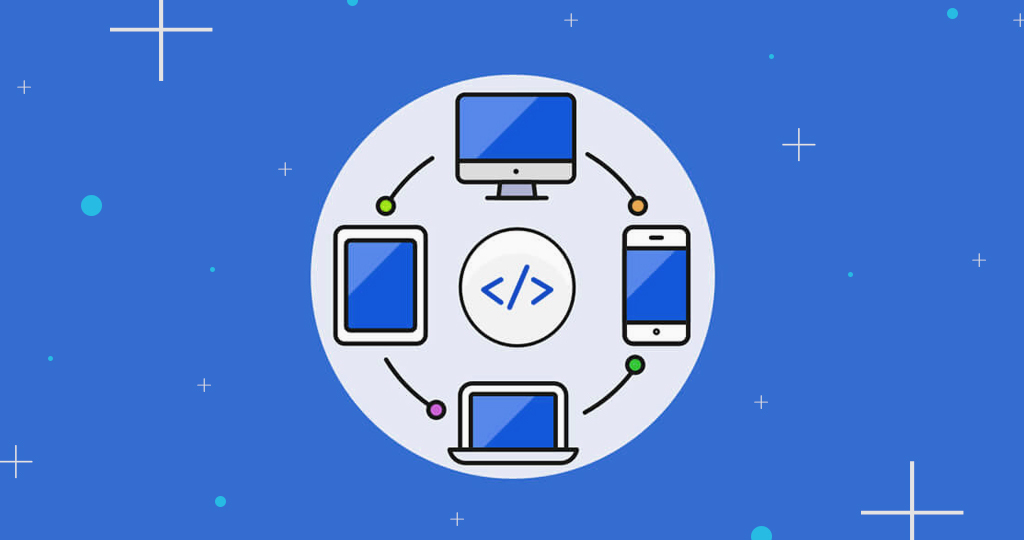The ongoing Mobile Revolution is present at an all-time high, with different types of facile mobile phones getting manufactured and ingrained are the multifarious mobile apps. It is becoming a product of ubiquitous usage among mobile users for performing their day-to-day activities. Apps stimulate you to book tickets, track delivery orders, and place orders through e-commerce platforms at once. Almost every Mobile App Developer is keen on and interested in cross-platform app development. Momentarily, before we choose the cross-platform app development company which provides the best cross-platform mobile app development services, it becomes a necessity to precisely know what cross-platform development is and their preferences among the many businesses.
Key Takeaways:
- Cross-platform app development significantly reduces costs compared to building separate native apps for different platforms, making it a budget-friendly choice.
- Choosing the right cross-platform tool and framework is crucial, as it directly impacts app performance, development speed, and user experience.
- With cross-platform development you can simplify the process by allowing developers to use a single codebase for multiple platforms, resulting in faster development cycles.
- Businesses can reach a broader audience with cross-platform apps, by working seamlessly on various operating systems, increasing market penetration.
What is Cross-Platform Development?
Cross-platform mobile app development offers the technological advantage for developers to adhere to a single app and ensure its functionality is operable across different mobile platforms. Some of the universal programming languages that can be used for this purpose are Javascript for React Native and Dart for Flutter. Businesses mostly prefer using cross-platform development simply to achieve mobile apps efficiency and business performance.
Why Cross-Platform App Development?
The complexity of employee management on a daily basis and several other business processes can be efficiently sorted out using cross-platform mobile apps. This involves linking different types of mobile devices and platforms that originate from iOS, Android, Windows, etc. Here we have specified the list of cross-platform app development approaches given below:
- Hybrid Apps
- Rapid Mobile App
- Windows Universal Apps
- Progressive Web Apps
Overall, the qualities of cross-platform apps have superseded those of native apps, and hence we are going to highlight them in our following sections.
Best Cross-Platform App Development Tools
At first, businesses have to choose the right cross-platform tool and framework for building an efficient app. With plenty of cross-platform tools and frameworks being made available, it is really a challenge for a mobile application development company to rely on a singular mobile platform. Therefore, we have handpicked the best cross-platform development frameworks with defining features for businesses in 2024.
1. Phone Gap
Phone Gap is a versatile cross-platform tool for mobile app development that can be used with flexibility to deploy cross-platform apps. The Phone Gap has the ability to impress any designer who is well versed in working with front-end technologies. It is a free, open-source software environment that permits the integral development of cross-platform mobile apps in 2024. This framework is very popular among app developers and is also known as Apache Cordova.
Features
|
2. Appcelerator
Appcelerator is one of the best cross-platform frameworks for mobile development out there. Basically works using JavaScript and then develops the universal code responses that engage in effortless deployment and testing of mobile applications. It is practically viable for experienced developers to reuse the same code and develop a cross-platform mobile application. The feasibility of Appcelerator Framework is much better with the schema-less database integrated with Arrow DB for achieving zero setup efforts.
Features
|
3. React Native
React Native is one of the most powerful cross-platform app development frameworks that supports the notion of learn once, write everywhere programming. It provides cross-platform app developers the opportunity to build native functionality over a singular code base and ensure its portability across Android and iOS mobile applications. React Native will be a perfect fit for agile development and would be effective for building a category of projects.
Features
|
4. Flutter
Flutter is capable of handling hot reloads by developing source codes that can be loaded into the Dart Virtual Machine. It gives cross-platform app developers the chance to rebuild the widget tree and then inspect its flawless performance over the iOS and Android apps. Flutter is among the favorites for all mobile app development company to quickly start their cross-platform app development project and secure the end product by saving valuable time.
Features
|
5. Xamarin
Xamarin is a comprehensive cross-platform framework for developing apps compatible with mobile, tablet, and desktop systems. It gives app developers the comfort zone to bear the complete responsibilities of both Android App Development and iPhone App Development in quick succession. It supports the adaptation of the C# and F# programming languages together with the Razor template engine. It has an intrinsic native interface that can be used to build the latest products that exactly match the client’s specifications.
Features
|
6. Ionic
Ionic Framework is built-in with the HTML5 programming codes to build Hybrid Apps effectively. Being considered as one of the best cross-platform app development frameworks, it can help in providing adequate support, speed, and third-party access for the end user who persists with the Hybrid Apps instead of pure native apps. However, it demands each and every time for a wrapper like Cordova source code to continue working as a native app.
Features
|
7. Unity 3D
Unity 3D has a native app shell and a gaming engine to develop hybrid mobile apps in quick time. It can be used to build graphic-rich, powerful games for Android, iOS, and Windows platforms. The Unity 3D Framework can also be utilized for building some of the non-gaming applications like educational, Home Design and Marketing Apps. It permits the use of other app-focused technologies, including development platforms, for building a native-like application.
Features
|
8. Felgo
Felgo provides an easy-to-use Software Development programming kit that can be accessed over the QT Framework. This cross-platform framework consists of popular C++ structures that can be effectively utilized in cross-platform development. Felgo leverages the QT core by using an app and a game element. It achieves the status of a standalone platform through plugins for in-app purchases, analytical tools, etc.
Features
|
9. RhoMobile
RhoMobile provides Rhodes through a Ruby-based open source framework. Basically, RhoMobile equips RhoHub with a hosted development environment for cross-platform app development that is vastly compatible with RIM, Windows, Symbian, Android, and iPhone devices. It uses RhoSync, an independent server that can store all the application data that needs to be integrated into your mobile apps, along with the updates on user devices. It is one of the easiest programming frameworks that can build native-like applications that are capable of achieving mobility across different mobile platforms.
Features
|
10. Kony Mobile Platform
Kony Mobile Platform is capable of developing universal apps with the requisite features. It can handle channel-specific APIs, third-party library integrations through a foreign function interface, etc. Kony One Server helps businesses produce mobile optimized contents with offline sync and thus enable SMS push notifications to be transmitted on demand. Kony Visualizer has the ability to power the front end using the multi-channel JS API Framework and so creates a wide array of services for smartphone brands like Android, Windows, and iOS.
Features
|
11. Sencha
Sencha ExtJS is mostly similar to React Native and equal in functionality. It has the resources to offer a visual application builder for the HTML5 framework that can be further empowered by the reusability of custom components. Sencha produced cross-platform apps can be tested and previewed in browsers and mobile apps with ease.
Features
|
How to Choose the Right Framework for Cross-Platform App Development?
Selecting the ideal framework plays a very crucial role for a successful cross-platform app development project. Start by assessing your project's specific requirements. If you prioritize flexibility and an extensive developer community, PhoneGap, also known as Apache Cordova, might be the right fit. For those aiming for rapid development and with a "learn once, write everywhere" approach, React Native stands out. Meanwhile, Flutter's hot reload capability and GPU rendering make it a compelling choice for graphic-rich applications. Xamarin offers comprehensive support for multiple platforms and languages, while Ionic is favored for its HTML5-based development and AngularJS integration. Unity 3D shines in rendering 2D and 3D scenes, making it ideal for gaming apps, and Felgo streamlines development with real-time testing. RhoMobile offers adaptability across various platforms, and Kony simplifies app development for multiple devices. Sencha, on the other hand, ensures security and compatibility across different screen sizes. Carefully assessing these frameworks against your project's specific needs will lead you to the right choice for successful cross-platform app development in 2024.
Conclusion
The steady progression of your mobile app development is largely dependent on the best cross-platform mobile app development tools that you intend to choose while taking full advantage of the cross-platform frameworks and tools. The everlasting revolution steered by the internet would greatly influence your business's decision to build an online presence. In the future, businesses will begin to shift online, providing entrepreneurs with the benefit of mobility. Being a leading mobile app development company in Dubai, Way2Smile Solutions understands the significance of selecting the best cross-platform framework and tool and provides you with the best cross-platform mobile app development services for your project. As a cross-platform app development company, our team of experts can guide you through the nuances of each framework mentioned, helping you make an informed decision that aligns with your project's unique needs.







